Issue #24
Winter
2020/21
In this issue:
- Accomplishments in 2020
- Reports & Recommendations
- Concerns & Complaints
- Compliance Audits & COVID
- New Work in Progress
- People
Chair's Message
 Here in BC the coming year will continue to see a significant focus on big issues from the past year; the economic transition in the forest sector driven in part by declining fiber supply, managing the implications of the COVID 19 pandemic, and implementation of the Declaration on the Rights of Indigenous Peoples Act. The province also has a new government, who has committed to update forestry legislation, to implement the recommendations in the report “A New Future for Old Forests,” and to restructure the current Ministry of Forests, Lands and Natural Resource Operations and Rural Development.
Here in BC the coming year will continue to see a significant focus on big issues from the past year; the economic transition in the forest sector driven in part by declining fiber supply, managing the implications of the COVID 19 pandemic, and implementation of the Declaration on the Rights of Indigenous Peoples Act. The province also has a new government, who has committed to update forestry legislation, to implement the recommendations in the report “A New Future for Old Forests,” and to restructure the current Ministry of Forests, Lands and Natural Resource Operations and Rural Development.
The FPB, like many other organizations, is continually stretched in our ability to cover the complexity of issues in BC. With so many initiatives underway, it is critical that our organization identify our priorities and focus on them.
The FPB strategic plan, developed in 2019, guides us when setting priorities. We also pay close attention to where our work is most likely to have a positive impact.
In the coming year, the Board will continue to focus on potential changes to the Forest and Range Practices Act (FRPA). FRPA requires updates in several areas and the Board is particularly interested in the opportunity to have tactical planning, (also known as Forest Landscape Planning) become part of the forest planning framework.
A major new initiative for the FPB will be starting to work on the role forest practices can play in mitigation or adaptation to climate change. This sounds easy, but the field of climate change and forestry is massive, so a first step will be to figure out how we can address “bite sized chunks” of the forestry and climate change puzzle.
In the coming year we will finalize reports on recreation and species at risk tools in FRPA, and will start several new projects described in this newsletter. While we can’t do everything we want, we believe these priority projects will continue to make a meaningful contribution to better forest and range practices in BC.
Accomplishments in 2020
Despite the challenges of 2020, we managed to accomplish a lot this year.
We carried out 5 audits of compliance with FRPA – 2 audits of BC Timber Sales programs and 3 audits of government obligations for maintaining forest service roads. We published 7 audit reports, including 2 of the audits conducted this summer.
We received 38 concerns and 4 new complaints from the public, which is actually a decline from previous years. We completed and published 7 complaint investigations that began in previous years.
Work on several special projects continued in 2020 and we completed and published 3 major special investigation reports, covering bridge maintenance, management of fish habitat on the ground and reforestation success in the dry Interior Douglas-fir ecosystem .
We also published our 2019-2020 annual report and made submissions to the government’s public consultations on Old Growth and Together for Wildlife. Finally, in recognition that 2020 was the 25th anniversary of the Forest Practices Board, we combed through our reports to come up with ‘25 Tips for Forest and Range Practices’ and shared those on social media throughout the year, and in a compendium document published on our website at the end of the year.
The Board made 9 new recommendations in 2020 and received responses to 12 recommendations, of which 6 were fully implemented, 2 are being partially implemented, 2 were rejected and 2 responses are still being assessed at the time of this newsletter. Responses to our recommendations can be found on our website: https://www.bcfpb.ca/wp-content/uploads/2020/12/Recommendations.pdf
Reports & Recommendations
Reforestation in the Dry Interior Douglas-fir Ecosystem
Reforestation in the Dry Interior Douglas-fir Ecosystem
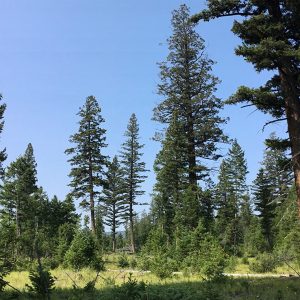 This report from October 2020 looks at success in reforesting stands on the driest sites in the Interior Douglas-fir forest biogeoclimatic zone. Our sample consisted of those sites that we expected would be the most difficult to reforest. Not surprisingly, the investigation found some issues with reforestation success on these sites. However, the learnings from this investigation apply to all reforestation activities in the dry IDF. On November 25, we hosted a webinar to present the results of this report, provide more information on reforestation in the IDF, and to answer questions. Over 140 people joined the event. If you missed it, the webinar is available for viewing on our website at https://www.bcfpb.ca/news-resources/videos/webinar-reforestation-in-the-interior-douglas-fir-subzone/
This report from October 2020 looks at success in reforesting stands on the driest sites in the Interior Douglas-fir forest biogeoclimatic zone. Our sample consisted of those sites that we expected would be the most difficult to reforest. Not surprisingly, the investigation found some issues with reforestation success on these sites. However, the learnings from this investigation apply to all reforestation activities in the dry IDF. On November 25, we hosted a webinar to present the results of this report, provide more information on reforestation in the IDF, and to answer questions. Over 140 people joined the event. If you missed it, the webinar is available for viewing on our website at https://www.bcfpb.ca/news-resources/videos/webinar-reforestation-in-the-interior-douglas-fir-subzone/
Government recognizes the issues identified in this investigation and the Ministry of Forests, Lands, Natural Resource Operations and Rural Development is working on addressing them by updating guidance for professionals. New guidance is expected in 2021 and the Board encourages all forest licensees and professionals working in the IDF to review the information when it becomes available.
The Board made two recommendations in this report and asked government to respond by the end of February 2021.
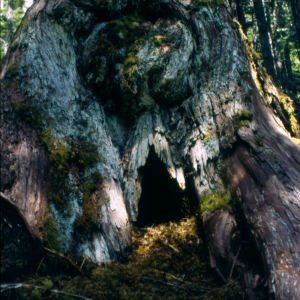
Black Bear Dens
Following publication of this report, the Ministry of Forests, Lands, Natural Resource Operations and Rural Development is undertaking a field study of the effects of forestry treatments on black bear dens on Vancouver Island, and providing training to Ministry biologists on identification and protection of black bear dens. The Ministry has hired an expert consultant to provide advice and review as part of this work. This is a positive development and we look forward to seeing the outcomes of this work.
Bridge Planning, Design & Construction Follow-up Project
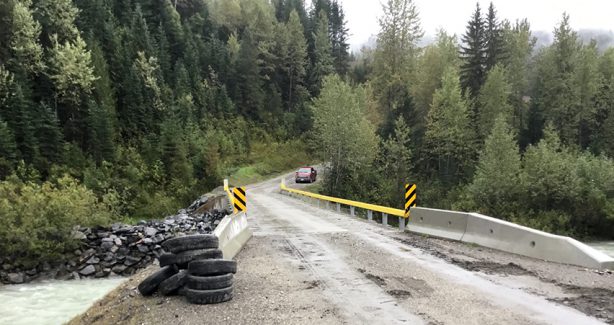
The Board made three recommendations in this report, published in April 2020.
1.The ABCFP and Engineers and Geoscientists BC review the professional practice guidelines for crossings with an eye towards improving clarity to help their members understand their responsibilities for bridge planning and design.
2.The ABCFP should subsequently review its guidance for forest professionals to ensure it is clear and consistent with professional practice guidelines for bridge planning and design.
3.The Ministry of Forests, Lands, Natural Resource Operations and Rural Development confirm how it intends to undertake ongoing compliance monitoring and, if necessary, enforcement, of bridge planning, design and construction.
The ABCFP and EGBC have prepared and approved an updated version (Version 3) of the Guidelines for Professional Practice in the Forest Sector – Crossings (the Crossings Guidelines) in response to the Board’s work and feedback from professionals. The associations said they expected to publish the guidance in December 2020. The ABCFP has also completed a review of its guidance for forest professionals and has made several changes.
Government told the Board that enforcement response on active and high-risk roads is a priority. In addition, Compliance and Enforcement Branch has recently initiated a joint management team with BC Timber Sales to increase communication and is liaising with Engineering Branch to help focus on priority issues.
These actions have addressed the Board’s recommendations and should address the issues identified in this special investigation. The Board is encouraged to see the efforts taken to improve this important area of forest practice.
Concerns & Complaints
Members of the public who have concerns about forestry or range issues will often contact us by telephone or email to see if they can submit a complaint to the Board. The Board encourages people to try to resolve the concerns before resorting to a complaint investigation and our staff will often help them. This help can range from providing information on who to contact, to answering questions about forest practices and legal requirements, or even contacting licensees or government staff on behalf of the person. As a result, only those issues that cannot be resolved to the person’s satisfaction end up becoming formal complaints that are investigated by the Board. Here is one example of a concern that was resolved in 2020.
A member of the public contacted the Board after reading a recently published Board report. She wanted to talk about concerns she had with proposed timber harvesting near her home. A Board investigator telephoned her and listened to her concerns about past harvesting in her area. About 30 years ago, a hydrology study had shown that over-harvesting had caused severe flooding and recommended no more harvest in the area. However, she recently received information from a forest licensee that was proposing a cutblock uphill of her property. She had sent them comments on the proposal, but had not heard back. The investigator offered to make some calls and put her in touch with the government’s regional hydrologist. The investigator contacted the licensee, who did some investigation and reported back to the concerned citizen that the cutblocks near her property had been reduced from 90 to 25 hectares in size. The citizen also spoke with the regional hydrologist, who was able to provide information that eased her concerns.
Since the citizen is now in contact with the government hydrologist and the licensee, the Board closed the file but advised her to contact the Board at any time if she has further questions or concerns.
In 2020, the Board addressed 38 concerns and received 4 formal complaints from the public.
Compliance Audits & COVID
With all the change and unknowns that COVID-19 brought in March 2020, the Board decided to scale back its audit program and not audit any industry licensees or small tenure holders this year. With the province in lockdown mode in the spring, we did not know what kind of activity would be happening in the field, or what the summer field-season restrictions might look like. Knowing that government was an essential service and its employees were still working, albeit remotely, we decided to proceed with two audits of BC Timber Sales and three audits of District Manager (DM) obligations to maintain forest service roads.
As it turned out, field work was allowed to proceed with COVID safety protocols provided by Work Safe BC and guidance documents developed by the BC Forest Safety Authority, which we adopted for our staff. Every field visit had a COVID safety plan for staff to follow. We completed audits of the BCTS programs in the North Island – Central Coast Natural Resource District and in the Burns Lake field unit portion of the Babine BCTS Business Area. We also completed audits of district manager obligations for forest service roads in the Campbell River, Okanagan-Shuswap and Peace Natural Resource Districts.
We recently reviewed our experience with field work under COVID rules and identified some improvements to our safety protocols that we will put in place for the 2021 field season. Now that we have some experience and better understand how to work safely under COVID, we expect we will be doing more field work in 2021.
New Work in Progress
Water Special Report
Water Special Report
Over the years, the Board has done a lot of work related to forest and range practices and impacts to water resources. We have investigated forestry activities in community watersheds and have looked at numerous complaints about water impacts from members of the public. Our audits have also tackled this issue. In 2011, we published a report summarizing our work and were looking forward to the introduction of the new Water Sustainability Act as a possible remedy to some of the problems we found. Nearly 10 years have passed and water continues to be a significant issue in our work. Government has announced that it will be starting development of a new Water Security Strategy for BC as a priority in 2021.
The Board’s special report will examine the public complaints investigated by the Board, audits carried out, and special investigations completed under the Forest and Range Practices Act regulatory regime, related to domestic water in BC forests. It will summarize the issues identified by the Board, and suggest actions that could be taken to improve protection of drinking water from forestry and range activities.
Indigenous Engagement
There are many values of interest to Indigenous Communities that are directly affected by forest management in BC. Consistent with the Board’s draft policy on Indigenous Engagement, in the New Year the Board will be expanding its engagement with Indigenous communities; we are interested in identifying possible topic areas for special projects that are of interest to Indigenous communities, (such as how well FRPA conserves or protects Cultural Heritage Resources), and to explore ways to reflect indigenous values in those projects.
Investigation of Wildfire Act Determinations
If government suspects that a person caused a wildfire or contravened the Wildfire Act, it conducts an investigation. A government official weighs the evidence and makes a decision, called a determination. The official “determines” whether a person caused a wildfire or whether there has been an administrative contravention, and if so, may levy penalties, recover costs, and order remediation. The Board regularly receives and reviews Wildfire Act determinations.
The objective of this special investigation is to determine whether Wildfire Act determinations are appropriate. Under FRPA, the Board has a mandate to investigate ”the appropriateness of government enforcement.” For the purposes of this investigation, appropriate means consistent, fair, and timely. The review will also identify policy issues, such as how the regime addresses the public interest in hazard abatement (including fuel reduction in wildland urban interface areas), and any differences among those subject to its regulations – e.g., private landowners, forest licensees, railway companies, etc.
Climate Change
The Board has identified climate change as a strategic priority. Board staff are looking into a variety of potential climate change-related Special Projects and resources to integrate climate change considerations into the everyday work of the Board. Centered around the question, “how can/do forest practices support adaptation or mitigate the effects of climate change?” the Board is considering ways to evaluate licensees’ application of innovative practice, and Government’s supporting role in policy development, research and monitoring.
People
New Board Members
New Board Members
Government appointed two new members to the Board in August, replacing members who completed their terms earlier this year.
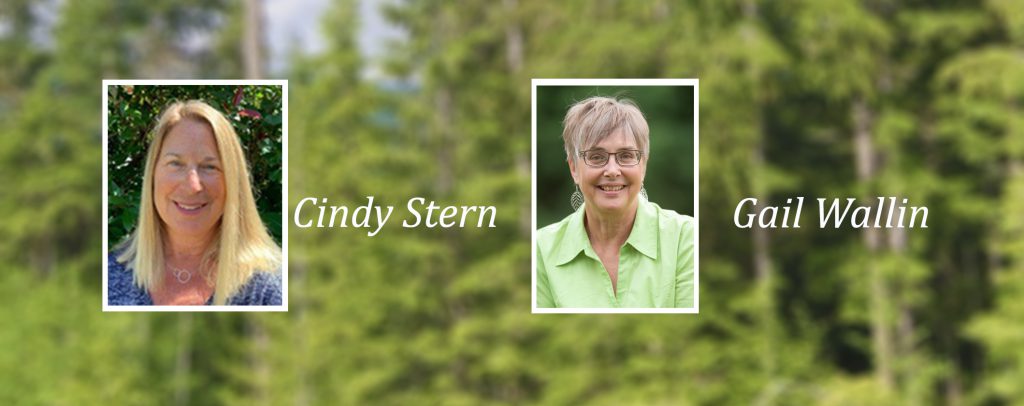
Cindy Stern
For the past 14 years, Cindy has been a consultant working primarily with First Nation communities on the Coast advising on strategic forestry matters, resource management, economic development and administration. Before that, she worked for the Ministry of Forests, Lands, Natural Resource Operations and Rural Development as District Manager for the Haida Gwaii and South Island Natural Resource Districts and Regional Executive Director for the Coast Region.
Gail Wallin
Gail has held senior leadership roles with the BC Forestry Association, Fraser Basin Council and is the Executive Director for the Invasive Species Council of BC. For over 25 years, Gail has also had her own consulting business specializing in natural resource facilitation. Gail has served as a volunteer to many boards including the Canadian Council on Invasive Species and Sustainable Forest Initiative.
Staff Changes
 Chris Oman
Chris Oman
In October, Chris was appointed Director of Investigations. A Registered Professional Forester (RPF), Chris began working for the Board as a complaint analyst in 1998. He later worked in the Board’s audit program and has been the lead on many special investigations. His knowledge and experience will bring strong leadership to the Board’s complaint investigations and special projects programs.
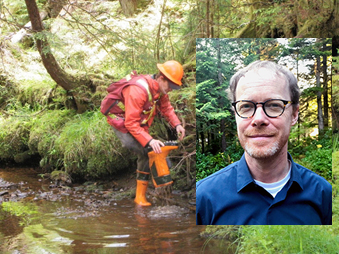
Nick Reynolds
In November, Nick joined the Board as our new manager of Special Projects. Nick has a Masters in Sustainable Forest Management from the University of British Columbia. He is a RPF who has worked as a consultant with government, industry, academia, and First Nations over the last 20 years. He has a broad range of experience including wildlife biology, growth and yield establishment and re-measurement, silviculture, and forest ecology research, land use planning and Land Use Order development, timber supply reviews, forest carbon assessment, wildlife habitat inventory, and cultural feature identification and training. Nick spent many years as an FSC auditor throughout Canada and was a member of the 2018 Forest Inventory Review Blue Ribbon Panel.

Mark Haddock
Mark Haddock will be retiring at the end of January. Mark has been the Board’s General Counsel since February 2016. Mark also served as a Board member from 1999-2001 and again from 2004-2008. Mark brought a wealth of experience in environmental and administrative law to the Board. He represented the Board in a number of significant appeals at the Forest Appeals Commission, as well as providing legal advice for audits and investigations. The Board will certainly miss his measured and thoughtful guidance and advice. We wish Mark all the best in his retirement.

